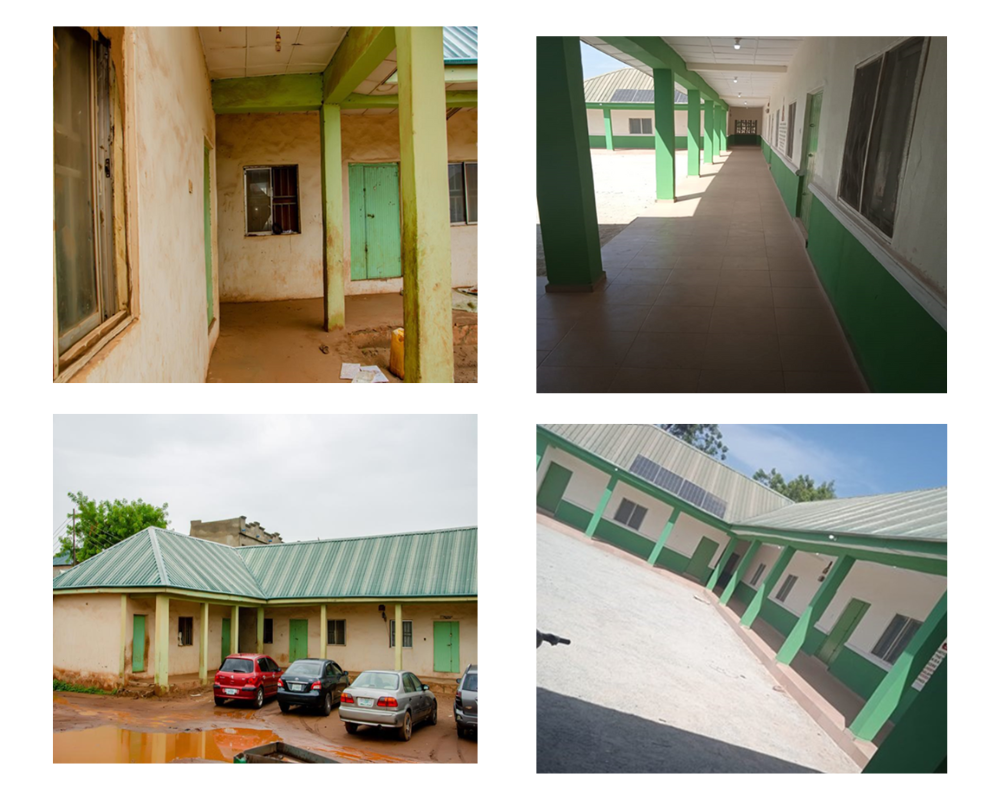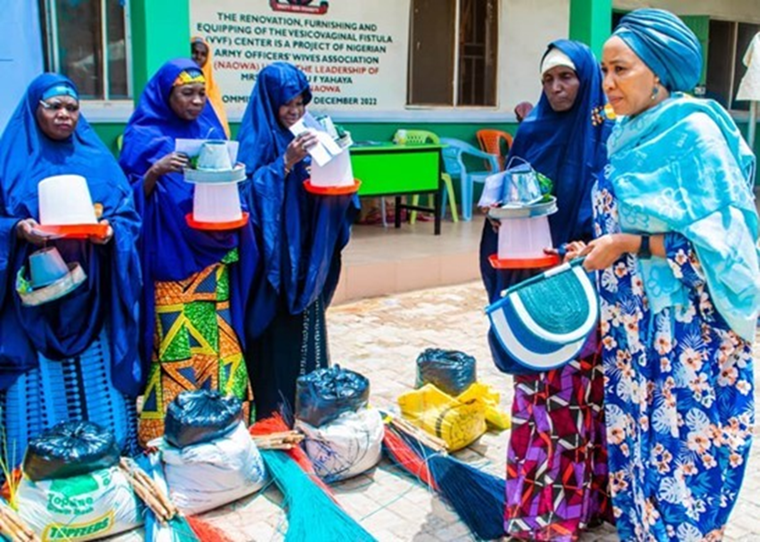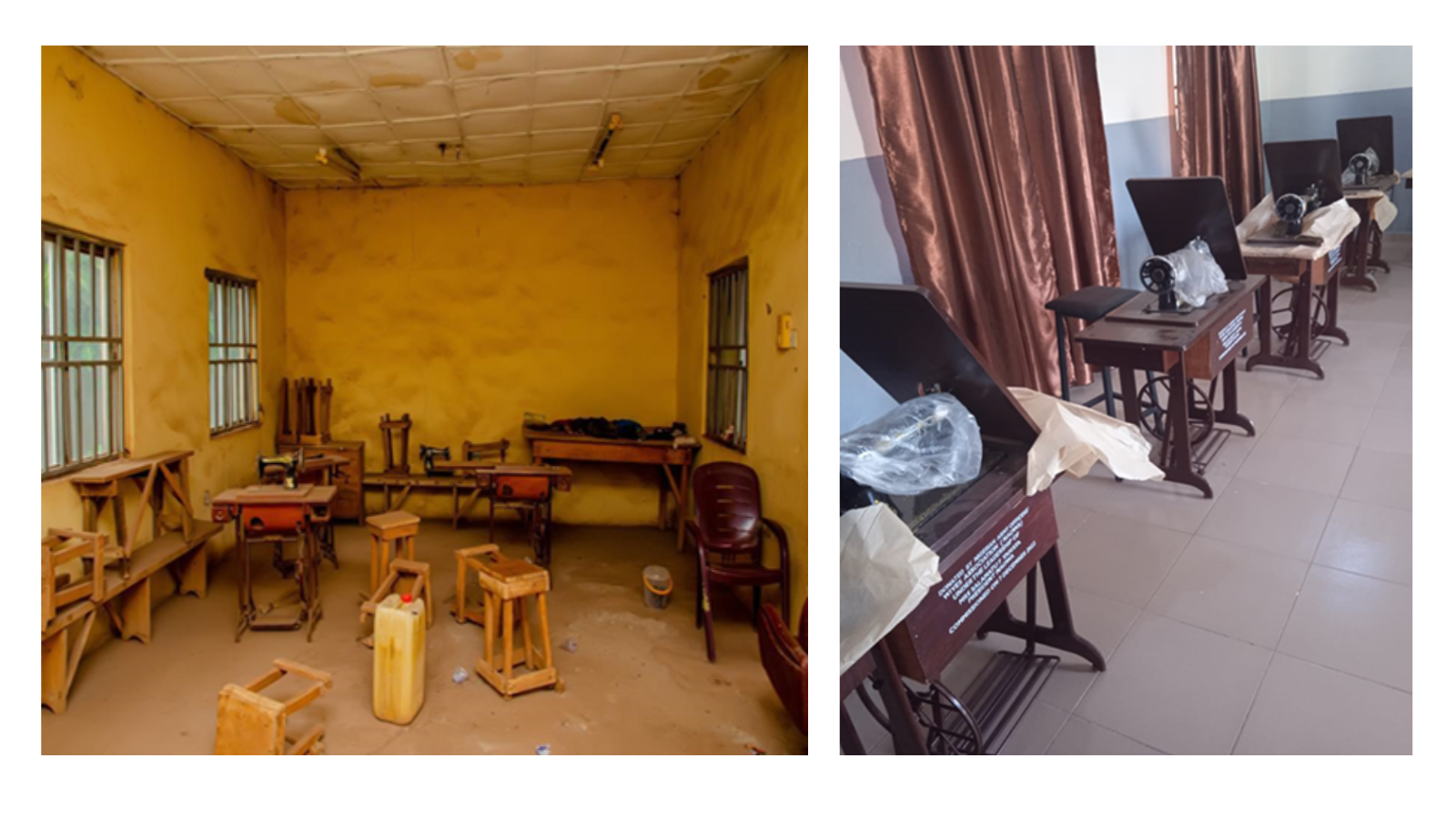Private Sector Is An Invaluable Partner in Nigeria
Published on April 29, 2024
by Abdulazeez Jumare, MERL Manager, MOMENTUM Safe Surgery in Family Planning and Obstetrics Nigeria
A genital fistula is an abnormal opening in the birth canal that results in leakage of urine and/or feces. Fistula is most often caused by obstructed labor and, increasingly, by iatrogenic injury (accidental harm by a healthcare provider, often during a cesarean section). Fistula survivors are often stigmatized: many are abandoned by their families and generally live a life of poverty, struggling even to be allowed to engage in casual jobs to earn income. Economic empowerment is a vital part of rehabilitation, including vocational training to support survivors to recover their lives and their dignity. A holistic approach to care requires medical and rehabilitation and reintegration (R&R) services for fistula clients.
In Nigeria’s Sokoto State, the Ministry of Health oversees clinical health services, and the Ministry of Women Affairs is responsible for ensuring fistula survivors are rehabilitated and reintegrated. Only a few of these women receive R&R services due to the absence of a coherent national/state rehabilitation strategy and budget to support the strategy. Furthermore, there is inadequate staffing, equipment, financial literacy training programs, and grants to support a fully functional R&R center. Private sector engagement is one solution to address these gaps and to mobilize additional resources, a strategy proposed during a co-creation meeting held in May 2022 between MOMENTUM Safe Surgery in Family Planning and Obstetrics and the Sokoto State Ministry of Women Affairs.
Preliminary Steps to Engage the Private Sector
An initial analysis of the Ministry revealed limited capacity to engage the private sector. MOMENTUM provided on-site coaching to the Director of Women Affairs and the national Head of Vesico-Vaginal Fistula (VVF) Centers to jointly develop a presentation targeting different private sector entities identified via a stakeholder analysis to help meet identified needs. The project then supported the Ministry to organize a private sector engagement meeting to present current R&R progress, gaps, and needs. First Bank of Nigeria PLC, Zenith Bank, Access Bank, Dangote, and BUA Cements were among those in attendance. The project advocated for these entities to apply their commitment to corporate social responsibility, resulting in two entities pledging to financially support survivors of fistula and gender-based violence (GBV).
Private Sector Responds
Following the meeting, the project and the Ministry developed a financial proposal outlining needs related to renovation, information and communications technology, and vocational skills training, among others. These were shared by the Ministry with a broad range of private sector entities and associations and followed up by the Director of Women Affairs with support from the Honorable Commissioner for Women and Children Affairs and MOMENTUM staff. The Nigerian Army Officers Wives Association (NAOWA) supplied a donation of sewing machines, tailoring machines, office furniture, chairs, hospital equipment, the construction of a solar-powered water borehole, and renovation/painting of the Sokoto State VVF Rehabilitation Center. Approximately half the total budget estimate has been covered, and First Bank of Nigeria PLC donated medical consumables (disposable products used during surgery) for the surgical repair of 15 fistula survivors. The VVF Center started offering vocational training to survivors and the Ministry of Women Affairs posted permanent staff to provide administrative and operational services to the Center.

“I am quite excited this journey…has resulted in tangible results in terms of resources that have helped to renovate and equip our rehabilitation and reintegration center,” said Hajia Aisha Mohammed Dantsoho, Permanent Secretary, Sokoto State Ministry of Women and Children Affairs. “We are proud of this effort and this coaching initiative by MOMENTUM has shown us we can do more with the right capacities built. We now need to focus on ensuring the smooth operation of the center so our women can be properly rehabilitated and reintegrated.”
MOMENTUM Continues to Build Capacity
With the NAOWA investment in the center, MOMENTUM is supporting management and service delivery training for social workers, a center manager, and others. Fistula survivors now benefit from training on different skills in a welcoming and well-equipped environment and can be linked to seed grants or loans to start up or continue their own businesses. The expectation is that earnings from these businesses will support women to improve their financial status and empower them in their healthcare decision-making, as well as contributing to their households and communities.

A beneficiary of the animal husbandry (poultry farming) skills training from Nufawa community said, “After the training, I continue to take good care of my chickens, applying all the skills and procedures I learnt from the training…Thank God people started buying from me. I then added more to the capital and now in my second round, my chickens are expected to be sold during Sallah festival in April 2024.”
The private sector is an invaluable partner in driving and sustaining outcomes capable of moving countries beyond the need for donor assistance. MOMENTUM is embracing this early successful effort to leverage private sector actors in Nigeria to fulfill their core commitments to corporate social responsibility and to restore dignity in the lives of fistula and GBV survivors. These innovative partnerships contribute to strengthening the health system and ensuring women are receiving the services and support they need.


